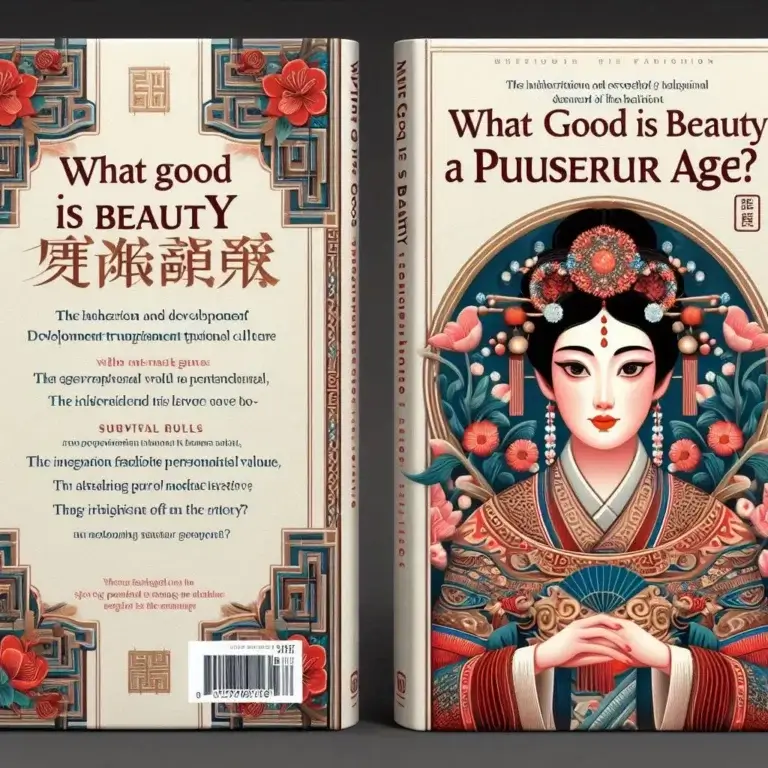After the evening banquet, the village chief led Liang Yingwu to their lodging, which was actually in villagers’ homes. These villagers were among the wealthiest in the village, with more spacious homes, but even these were quite bare. One house had the best setup, with an 18-inch color TV from the ’80s that could receive three channels, though not very clearly. Most other houses without student guests still used kerosene lamps, indicating the harsh living conditions. According to the village chief, electricity had only been introduced a couple of years ago. A decade earlier, life here was completely primitive. After settling in, the students gathered around Liang Yingwu. We both knew what they wanted. “We want to go to the human cave,” they said in unison. Liang Yingwu had anticipated this and, seeing their determination, agreed. I had no objections; these legends are often unreliable, and even if there was something strange, Liang Yingwu and I were not ordinary people. We had weathered many storms; surely, we wouldn’t capsize in this little mountain village? As it turned out, we didn’t capsize, but it was a close call. To this day, I still shudder at our recklessness and ignorance back then. The village nights were very quiet, with everyone going to bed early. The students, having spent a day traveling, should have been tired, but the excitement of the upcoming adventure kept them lively. Some even played exploration games, their powerful flashlights casting beams everywhere, rousing the village dogs to bark incessantly. After the excitement, complaints began to surface. They had sweated all day and needed to wash before sleeping, but there was no running water, so they had to use ice-cold well water. Not only was fetching water inconvenient, but there was no privacy. The girls had to form a circle to block the boys while one of them washed. They didn’t know if they’d find a place to bathe in the coming days, so despite the inconvenience, they had to make do. Moreover, the occasional appearance of large, frightening insects caused screams among the girls, echoing far in the quiet village. Liang Yingwu and I stayed at the village chief’s house, a two-story building built five years ago. The village chief said they found a high-quality wild ginseng in the mountains, sold it for a good price, and used the money to build the house. He gave us the entire second floor, where four of us shared two rooms. Some things were not convenient to discuss during the day, so that evening, it was just Liang Yingwu and me. It had been a while since we had such an opportunity to chat, so I took the chance to ask him about the internal affairs of the X organization.
My curiosity about this mysterious organization, unknown to almost everyone in China, is truly immense. However, Liang Yingwu is extremely tight-lipped; even as his good friend, he’s unwilling to reveal much about the inner workings of the organization. Nevertheless, he did mention a few cases he or others had recently encountered, though some details were vague, it was still an eye-opener. One case even involved the legendary Chinese creature known as “Nian.” Although it was never captured, all the gathered evidence pointed towards this mythical beast, once thought to be a figment of ancient Chinese imagination. This creature seemed to be connected with time, the most elusive element of the world’s basic structure. But most cases ended without resolution, as with humanity’s current scientific foundation and capabilities, even with the advanced technology at the disposal of the X-Organization, we remain powerless against many supernatural or fundamental natural phenomena. Yet, hearing that creatures like “Nian” might actually exist and were beyond measurement was enough to make me marvel at the endless mysteries of our world.
The next morning at 6:30, I was roused by Liang Yingwu. Normally, as a journalist in Shanghai, I’d consider getting up at 9 or 10 AM early if there was no morning interview. But now, there was no time for lounging. Fortunately, after washing with icy well water, my sleepiness was replaced by excitement about entering Shennongjia. Breakfast was a refreshing, thick porridge, served with incredibly fresh pickles, and before long, the large bowls were empty. Liang Yingwu didn’t need to say much; everyone knew this wasn’t like our usual breakfast where you could just go through the motions. The road ahead would be tough, so even Lu Yun, who ate the least, managed to finish a bowl and a half.
At 7:30 AM, our group of 14 waved goodbye to the village head and elders and embarked on our journey through Shennongjia. Of course, what we called “crossing” was merely traversing a corner of Shennongjia. The true depths of the forest would require even the most experienced hunters to prepare for a one-way trip, let alone us. Liang Yingwu led the way, compass in hand, frequently checking the map to ensure we were on course. The 12 students formed a diamond-shaped formation, not a simple line, to ensure that in case of emergencies, everyone could gather together quickly. Before setting off, these students had undergone brief military training. I walked towards the back of the line, where I could keep an eye on the entire team. The ground was covered with leaves accumulated over countless years, and we followed a stream. Contrary to the imagined dense forest blocking out the sky, the visibility was quite good here, with green trees, mountains, and flowing water. If we weren’t moving at such a brisk pace, it would’ve been quite a pleasant tour. According to Liang Yingwu, we were scheduled to reach the first settlement by tonight to restock on food and water, and by the third day, we would enter a primeval forest where even direct sunlight couldn’t penetrate, and it would take four full days to cross this dense area, one of the most challenging segments of our expedition.
This wasn’t like a regular tourist spot where paths are made by foot traffic even in the absence of official trails. Here, the terrain was still in its natural state, not rugged but undulating, with roots protruding from the ground that required careful navigation, and occasionally, we had to step over fallen trees. After two hours of walking, even I, a journalist accustomed to walking, felt my feet ache from carrying such a heavy backpack. Looking at the college students, who were chatting but sweating profusely, I realized the next ten days would be a significant challenge for them. In the village, some had already lightened their loads, distributing snacks and drinks to the local children, which made them burst into laughter. Despite this, a few still carried two packs. I’d bet within three days, they’d ditch more gear.
Almost all conversations revolved around Baojiazhan Cave, which we were expected to reach by noon. The mysterious cave in the mysterious Shennongjia was far more enticing to the young people than the beautiful scenery around them. Zhu Zili was already linking the cave with the curses of Egyptian pharaohs. However, despite their talk, these students showed no real fear, approaching the cave with a “let’s see the show” attitude, intending to use their so-called “scientific spirit” and “scientific methods” to explore this place considered forbidden by the locals.
Although we had eaten a hearty breakfast, the carbohydrates had long been converted into energy and consumed during the hike. At 11:15 AM, Liang Yingwu stopped us beside the stream in an open mud flat, where we set about making a fire for lunch. After a while, the fire was going, and two large pots of rice were placed over it, with the accompanying dishes being preserved meats and salted fish, items that wouldn’t spoil easily in summer. Though the food was simple and the rice a bit undercooked, everyone ate with gusto, emptying the pots in no time. After a brief rest, we continued our journey.



